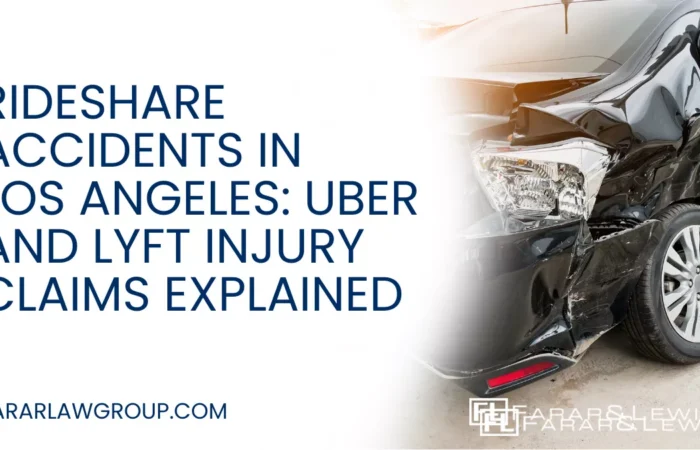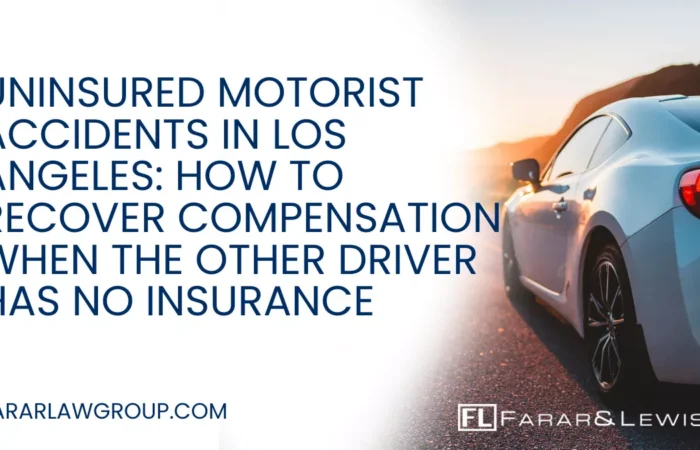You’re driving along on a typical day, perhaps thinking about the work you have to do or the groceries you have to buy. All of a sudden, the sound of a loud crash interrupts your reverie and you feel your body jerked hard against the seatbelt. You’re momentarily disoriented before you realize that you been in an accident. What you do next can determine how quickly recover from the incident as well as the severity of your legal and financial consequences.
Check for injuries.
The first thing you should do is to make sure that no one involved in the accident has suffered injuries, either minor or life-threatening. Check yourself first by moving your limbs, neck, head, and back. Ask your passengers to do the same. Then approach those in the other vehicle to make sure that they are all right.
Even a small ache or pain at this point can become something more serious later on, so it’s important to make a note of it now so a doctor can check it later. For more serious injuries, call 911. Wait for a first responder or ambulance to arrive and take care of the problem. In the meantime, apply any first aid, and keep the victim calm and immobile to prevent further damage. Move him or her only if there is a danger of further injury, such as from a burning vehicle.
Make sure to keep surrounding people and passing traffic safe as well. Turn on blinkers and put out any flares or traffic cones. Ask one of your passengers to direct traffic around the accident so you have time to examine the situation.
Assess the damage.
Assess damage to all involved vehicles as well as to any surrounding properties. Certain problems may be obvious, such as a dent or scratch, but others may be hidden. Try all your mechanical systems, such as by opening and closing doors, the trunk, and the hood. Inspect all sides of the car including under the chassis and the motor.
If the damage is minor or if your vehicles pose a danger to others, you may need to move them away from traffic to either the side of the road or a parking lot. Otherwise, leave them where they are until help arrives or until you can adequately document the accident.
Document.
While it is still fresh in your mind, document the accident and ask your passengers to do the same. You may want to talk to talk to eyewitnesses also to get their point of view. Write down what you think happened using the memo or texting function of your smartphone, or pen and paper, if they’re available. If it’s easier for you, you can also record your voice impressions of the incident.
Take plenty of pictures using your smartphone. Focus on the damage to the vehicles and property, any injured parties, people involved, and eyewitnesses. Don’t forget to get shots of your surroundings, street signs, traffic signs, weather conditions, and road conditions. Everything you gather may prove important to determining legal and financial responsibility.
Exchange information.
At the very least, exchange your name, contact information, license plate number, and insurance information with the driver of the other vehicle. When possible, get the same information from your passengers, the passengers in other vehicles, or eyewitnesses. Get contact information of any first responders, in case your have questions for them later on.
Contact third parties.
Contact your insurance company to find out what to do next. They will ask questions about what happened. You’ll find your documentation handy in answering them. You can even offer them your photos, texts, and contact information you gathered to help with their investigation. Don’t forget to task about the timetable for what happens next, so you’ll know what to expect when. They can also arrange for a rental car that you can use as temporary transportation, if you have that coverage.
If you have any questions about any legal issues, such as liability for damage or injury, contact a lawyers, such as ourselves. Consultations are free and, based on what you tell us, we may ask you to come in for a meeting. Again, all the pictures and information will be helpful in putting the law on your side and getting you any compensation you deserve.
If you or your passengers have even a minor ache or pain, get that checked out by a doctor. Where accidents are concerned, minor annoyances have a way of turning into major problems further down the line, especially if they’re not tended to immediately. Either your health insurance or your car insurance may cover the costs of treatment, which you can ask your insurance agent about.
Need legal help? Our Los Angeles car accident attorneys and Los Angeles personal injury attorneys are available to help whenever, and wherever, you need it.


